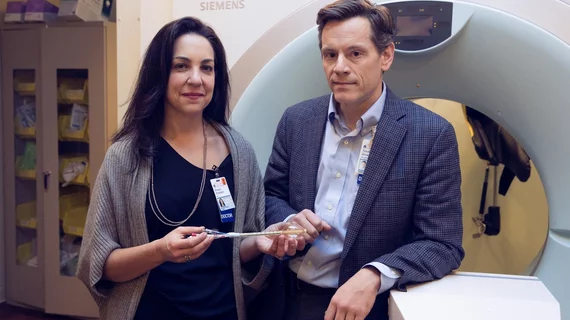Husband-and-wife duo receives $1.8M to study new imaging technique for breast cancer patients
Radiation oncologist Timothy Showalter, MD, and breast cancer surgeon Shayna Showalter, MD, of the University of Virginia Cancer Center in Charlottesville, have been awarded a five-year grant of more than $1.8 million for their work on improving care for early-stage breast cancer patients.
The husband-and-wife duo led the development of a new technique called Precision Breast intraoperative radiation therapy (IORT), which reduces weeks of radiation treatments for patients by adding high-powered imaging to radiation therapy. It is also meant to help spare healthy tissue and organs from being exposed to unnecessary radiation during the imaging process. Development of this new technique first began back in 2014.
The grant, from the National Institutes of Health’s National Cancer Institute, will help the researchers evaluate how Precision Breast IORT compares with other treatments and its overall effect on patients.
“Our research will address fundamental questions about the impact of radiation therapy on the immune system for cancer patients,” Tim Showalter said in a news release from the university.. “We will also provide evidence needed to understand how Precision Breast IORT compares to other radiation options—an important foundation for disseminating our findings.”
“The clinical trial of Precision Breast IORT has been very well-received in the region, with rapid patient enrollment, and the entire team is to thank for that,” Shayna Showalter said in the same release. “It is so rewarding to be able to advance the field through such a patient-centered research program.”

